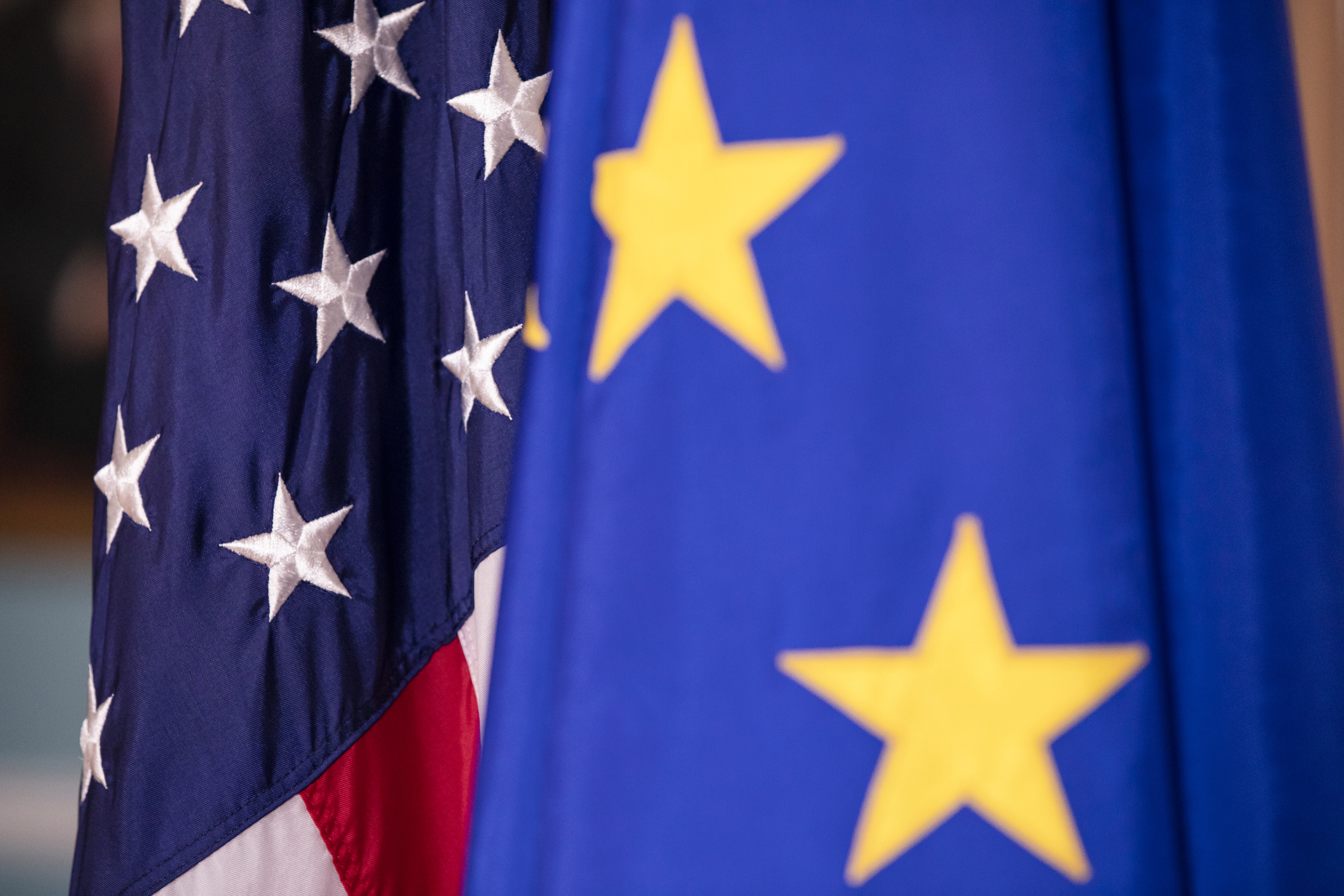The EU's 'long-arm' regulatory approach could create frosty US environment for European tech firms
US tech firms are throwing their toys out of the pram over the EU’s Digital Markets Act, but will this come back to bite European companies?


The EU risks making the US a hostile environment for European tech firms with its Digital Markets Act (DMA), according to industry experts.
Tech leaders have voiced their concerns that stringent regulations from the EU may lead to US tech companies using their influence to increase the cost of doing business for European organizations in the US.
This comes after a group of US lawmakers signed a letter to President Biden arguing the DMA will unfairly target US tech firms.
Speaking to ITPro, CEO at OpenUK Amanda Brock said the reaction from lawmakers in the US was understandable but it was also no stranger to ‘long-arm regulations’.
“When looking at the letter, it’s hardly surprising that the EU’s long arm reach is frustrating US regulators, though then again the US has pushed a long-arm regulatory reach across the globe for many years,” she said.
Brock added she feels the EU’s ‘waterfall approach’ to legislation is outdated and incongruent with the new digital landscape.
“The question the EU needs to ask themselves is will this approach really allow a tech sector to flourish?
Sign up today and you will receive a free copy of our Future Focus 2025 report - the leading guidance on AI, cybersecurity and other IT challenges as per 700+ senior executives
“Its waterfall approach to legislation – extremely prescriptive, detailed, and often paternalistic is one that might have worked in tech 25-30 years ago but which doesn’t reflect the way our digital economy works – which is agile and flexible. Somehow legislators need to move to this.”
European tech firms could face frosty reception in US
Dr Ilia Kolochenko, chief architect at ImmuniWeb and adjunct professor of cyber security and cyber law at Capitol Technology University, told ITPro the EU’s regulatory approach is not perfect, but argued it is preferable to the ‘Byzantine’ regulatory framework in the US.
“While it’s true that technology regulation in the EU – spanning from the mature GDPR to novel AI Act – is not 100% perfect, it’s still better than the convoluted patchwork of state legislation on privacy and data protection matters in the US, which are only partially addressed by pretty obsolete US federal laws and regulations.”
Kolochenko noted the two regions’ approaches to tech regulation are “innately incompatible’.
The result of this incompatibility, Kolochenko fears, will be a punitive response from the US.
“US tech companies and other industries concerned by the extensive and arguably harsh EU regulations will probably lobby for a legislative response to make European companies pay a high price for doing business on American soil,” he said.
“This outcome will be highly undesirable and counterproductive for both the US and EU. The ideal solution would be to find a middle ground approach to sustainably regulate innovation and technology that would peacefully coexist on both sides of the Atlantic.”
How will the Digital Markets Act affect US tech firms?
The Chamber of Progress, a US-based technology industry trade group, has hit out at EU legislation, including the Digital Services Act and Digital Markets Act, arguing that the latter will force companies to limit their products at the expense of foreign competitors.
The lobby group has called on the Biden administration to provide greater support for US-based firms, who it suggested could be put at a significant disadvantage in European markets.
RELATED RESOURCE

Discover why Zscaler ZTNA is ahead of the rest.
DOWNLOAD NOW
“By imposing rules on their services but not those of foreign competitors, the DMA would effectively mandate top US firms offer products to consumers that are less secure, less useful, and less innovative than rival products from foreign tech companies”.
The DMA will designate five US tech majors including Alphabet, Amazon, Apple, Meta, and Microsoft, as ‘gatekeeper’ service providers, who will be subject to stricter requirements to open up their messaging platforms.
Claims the DMA is not specifically targeting non-US firms are not strictly accurate, as the Chinese tech company Bytedance, owner of video hosting service TikTok, is also included on the European Commission’s list of designated service providers.

Solomon Klappholz is a former staff writer for ITPro and ChannelPro. He has experience writing about the technologies that facilitate industrial manufacturing, which led to him developing a particular interest in cybersecurity, IT regulation, industrial infrastructure applications, and machine learning.
-
 European Commission approves data flows with UK for another six years
European Commission approves data flows with UK for another six yearsNews The European Commission says the UK can have seamless data flows for another six years despite recent rule changes
-
 Three things you need to know about the EU Data Act ahead of this week's big compliance deadline
Three things you need to know about the EU Data Act ahead of this week's big compliance deadlineNews A host of key provisions in the EU Data Act will come into effect on 12 September, and there’s a lot for businesses to unpack.
-
 The second enforcement deadline for the EU AI Act is approaching – here’s what businesses need to know about the General-Purpose AI Code of Practice
The second enforcement deadline for the EU AI Act is approaching – here’s what businesses need to know about the General-Purpose AI Code of PracticeNews General-purpose AI model providers will face heightened scrutiny
-
 Meta isn’t playing ball with the EU on the AI Act
Meta isn’t playing ball with the EU on the AI ActNews Europe is 'heading down the wrong path on AI', according to Meta, with the company accusing the EU of overreach
-
 ‘Confusing for developers and bad for users’: Apple launches appeal over ‘unprecedented’ EU fine
‘Confusing for developers and bad for users’: Apple launches appeal over ‘unprecedented’ EU fineNews Apple is pushing back against new app store rules imposed by the European Commission, suggesting a €500m fine is a step too far.
-
 Apple, Meta hit back at EU after landmark DMA fines
Apple, Meta hit back at EU after landmark DMA finesNews The European Commission has issued its first penalties under the EU Digital Markets Act (DMA), fining Apple €500 million and Meta €200m.
-
 ‘Europe could do it, but it's chosen not to do it’: Eric Schmidt thinks EU regulation will stifle AI innovation – but Britain has a huge opportunity
‘Europe could do it, but it's chosen not to do it’: Eric Schmidt thinks EU regulation will stifle AI innovation – but Britain has a huge opportunityNews Former Google CEO Eric Schmidt believes EU AI regulation is hampering innovation in the region and placing enterprises at a disadvantage.
-
 The EU just shelved its AI liability directive
The EU just shelved its AI liability directiveNews The European Commission has scrapped plans to introduce the AI Liability Directive aimed at protecting consumers from harmful AI systems.


